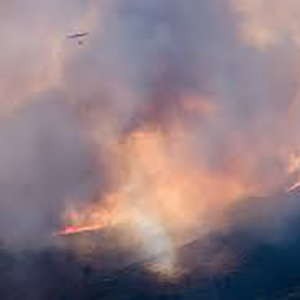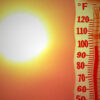
Joint News Release - Air Quality is Unhealthy; Take Steps to Protect Health
SPOKANE, Wash – The Air Quality Index (AQI) for Spokane County is currently in the Unhealthy / Red category and an Air Quality Alert has been issued by the National Weather Service. This means that everyone should limit time spent outdoors, avoid exercising outdoors and choose non-strenuous indoor activities. Infants, children, pregnant women, adults over 65, and pets are strongly encouraged to remain indoors.
Given the extreme heat over the next few days, coupled with the warnings to avoid or limit outdoor activity will be a challenge for those without air conditioning. Make sure you don’t get overheated if you live without air conditioning. Consider visiting family members, neighbors or public buildings that have air conditioning and air filtration. Leaving the area of thick smoke may be best for those with health conditions that put them at higher risk for illness.
Spokane Regional Clean Air Agency (Spokane Clean Air) expects unhealthy air quality conditions to remain in the area for the next couple of days and possibly beyond depending on weather and fire activity.
"Smoke from wildfires is especially harmful for those with health conditions like asthma. We recommend that people who are sensitive to poor air quality follow their breathing management plans, keep medications on hand and contact their health provider if necessary," said Dr. Bob Lutz, Spokane Regional Health District's health officer.
Children are more susceptible to smoke because their respiratory systems are still developing, they breathe more air (and air pollution) per pound of body weight than adults, and they’re more likely to be active outdoors.
Breathing in smoke can have immediate health effects, including:
- Coughing
- Trouble breathing normally
- Stinging eyes
- A scratchy throat
- Runny nose
- Irritated sinuses
- Wheezing and shortness of breath
- Chest pain
- Headaches
- An asthma attack
- Tiredness
- Fast heartbeat
It’s important that individuals limit their exposure to smoke – especially if they are susceptible. Children also are more susceptible to smoke because their respiratory systems are still developing. Kids breathe more air (and air pollution) per pound of body weight than adults, and they are more likely to be active outdoors.
Here are some additional steps people can take to protect themselves during wildfire season:
- Pay attention to air quality reports. The Air Quality Index (AQI) uses color-coded categories to report when air quality is good, moderate or unhealthy.
- Use common sense. If it looks and smells smoky outside, it is probably not a good time to go for a jog, mow the lawn or allow children to play outdoors.
- If a person has heart or lung disease, is an older adult, or has children, they should talk with their provider about whether and when they should leave the area. When smoke is heavy for a prolonged period of time, fine particles can build up indoors even though a person may not see them.
- Some room air cleaners can help reduce particulate levels indoors, as long as they are the right type and size for your home.
- Paper "comfort" or "dust masks" are not the answer. The kinds of masks people can commonly buy at the hardware store are designed to trap large particles, such as sawdust. But they generally will not protect lungs from the fine particles in smoke.
- Respiratory masks labeled N95 or N100 provide some protection - they filter out some fine particles but not hazardous gases in smoke (such as carbon monoxide, formaldehyde, and acrolein.) This type of mask can be found at many hardware and home repair stores and pharmacies.
For more information/Resources:
Spokane Clean Air’s “Current Air Quality” webpage
Washington State’s Wildfire Smoke Information Blog
Spokane Regional Health District Wildfire FAQ
Washington State Department of Health “Wildfire Smoke/Health” webpage
Media contacts:
Air Quality in Spokane County: Spokane Regional Clean Air Agency: Lisa Woodard, (509) 477-4727, ext. 115; LWoodard@spokanecleanair.org
Air Quality outside of Spokane County: WA Dept of Ecology: Brook Beeler, (509) 329-3478; brook.beeler@ecy.wa.gov
Public Health: Spokane Regional Health District: Kim Papich, (509) 324-1539; kpapich@srhd.org

